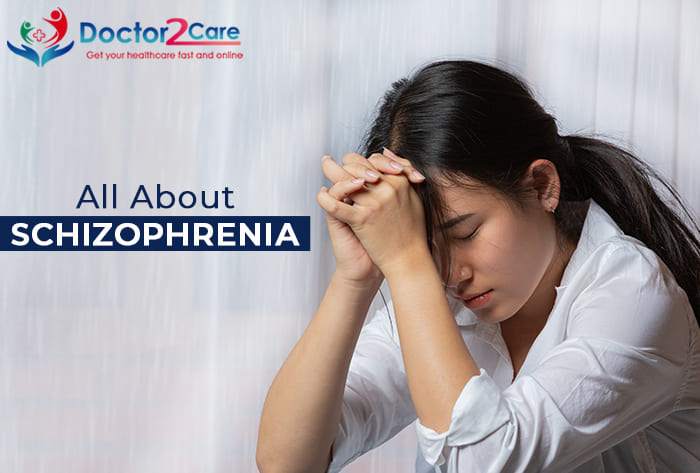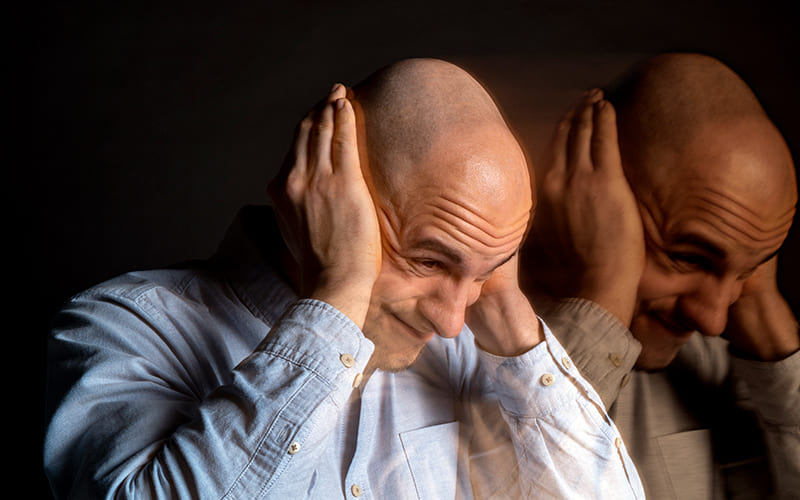All About Schizophrenia

World Schizophrenia Day is celebrated on 24 May each year. So, this year on the occasion, we decided to take a closer look at this mental illness, its symptoms, causes, diagnosis and treatment. Hence, before you take your loved ones to a medical practitioner, you can read through this short guide.
What is schizophrenia?
Schizophrenia is a serious mental disorder where the sufferer interprets reality differently. The person may suffer from delusions, hallucinations, disordered thinking, and certain behaviour that affects daily functioning.
Schizophrenia has an impact on the personal and relational life of people to the extent that they feel frightened and withdrawn. Moreover, they lose touch with reality. While this disease cannot be cured, it can be controlled with proper treatment.
What are the symptoms of schizophrenia?
The symptoms of schizophrenia are as follows:
- Delusions
Delusions can be as strange as believing someone is in love with you or certain gestures or remarks are directed at you and not based on reality.

- Catatonia
In this condition, the person may stop speaking and their body may be fixed in a single position for a long time.
- Hallucinations
Hallucinations involve hearing or seeing things that don’t exist. However, the schizophrenic feel them with the full force of reality. Hallucinations can affect any of the senses, but hearing voices is the most common.
- Disorganised thinking
There may be disorganised thinking and speech, often referred to as word salad. Answers may be partially or completely unrelated.
- Abnormal motor behaviour
The person may depict symptoms like childlike silliness and unpredictable agitation. Behaviour can also relate to inappropriate or bizarre postures and useless or excessive movement.
- Negative symptoms
This refers to the lack of ability of a person to live a normal life. The person may lack emotion and neglect personal hygiene. Moreover, the person may lose interest in everyday activities or not have the ability to feel pleasure.
In men, schizophrenia starts in the mid-20s while in women it starts in the late 20s. It is uncommon for children to be diagnosed with schizophrenia and those older than 45.
What is the cause of schizophrenia?
The cause of schizophrenia is unknown as of now. Here are some of the likely causes that a medical practitioner may suggest to you.
- Genetics
Schizophrenia runs in families, meaning there is a genetic link wherein the condition is passed on from parents to children.
- Brain chemistry and circuit
The neurotransmitters that control certain circuits of the brain affect behaviour and thinking.
- Brain abnormality
In some people, the brain structure may be abnormal. However, this is not true of all people with schizophrenia.
- Environment
Schizophrenia manifests when the body is undergoing hormonal or physical changes which is why it usually occurs during adolescence or early adulthood.
How is schizophrenia diagnosed?
There are no tests to diagnose schizophrenia. The medical practitioner will perform a complete medical history, a physical exam, or some blood tests. The doctor will in fact try to rule out substance-induced psychosis. Psychologists use special interview and assessment tools to evaluate a person for psychotic disorder. Moreover, they base their report on their family’s and person’s reportage of symptoms.
What is the treatment of schizophrenia?
The aim of any treatment for schizophrenia is to keep the conditions under control and prevent any relapse of this condition.
- Medications
The primary medication used to treat this condition is antipsychotics. While they cannot cure the disease, they certainly help to relieve the troubling symptoms.
- Coordinated Speciality Care
This therapy is a mix of medicine, social services, employment and educational intervention. The family of the sufferer is involved as much as possible. Early treatment can help to keep the disease under control.
- Psychosocial Therapy
Psychosocial therapies include rehabilitation, cognitive remediation, family therapy, group therapy, and individual psychotherapy.

- Hospitalization
People with schizophrenia may be hospitalised if they have severe symptoms, might harm themselves or can’t take care of themselves at home.
- Electroconvulsive therapy
In this process, the brain is subject to controlled electrical shocks which can help to boost the neurotransmitters in the brain. While scientists don’t fully understand how this works, they know that it has a positive effect on very severe cases.
- Deep brain stimulation
Scientists are currently working on a procedure called deep brain stimulation to treat schizophrenia. However, it is still at the experimental stage.
Takeaway
- Around 2/3 of the patients respond well to treatment.
- 3 in every 1000 Indians suffers from schizophrenia.
- Schizophrenics tend to be of danger to themselves rather than to others.
Hence, this World Schizophrenic Day, let us be sensitive to those who have been diagnosed with this condition and help them get back on the road to recovery.